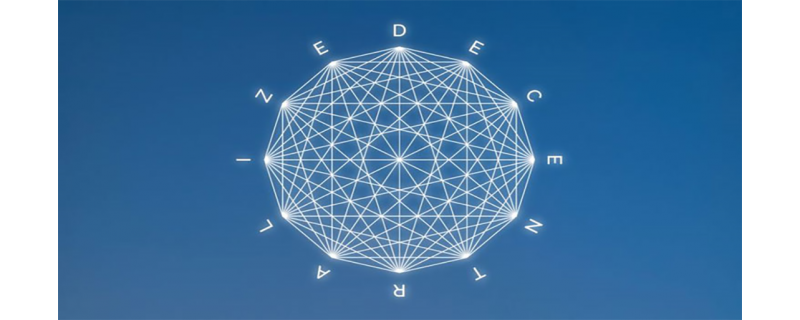Some argue that decentralization is a wide field for illegal activities. Others argue that the traditional financial system brings just as many, if not more, problems. In this article, we will look at what decentralization is and whether it really has a “dark side”.
Pros of decentralization
Decentralization is the process of distributing power, finance or effort without the intervention of a global governing body. Decentralized management systems are far from new. They are present in many companies. However, in financial management, such a system became possible only after the creation of the blockchain chain.
In order to understand what decentralization means in a blockchain, one should refer to the algorithm of the system functioning. In blockchain technology, decentralization of control is carried out due to the fact that there is no local server in the system, and all miners and participants in the transaction chain are equal.
The developers do not monitor operations in the blockchain, and confirmation of transactions is carried out by network users. The technology involves the distribution of computing power and data around the globe, while information is repeatedly duplicated to prevent loss, and DDOS attacks on such a system have zero or minimal effect.
One of the chief advantages of cryptocurrencies is their decentralized nature. We asked the experts what benefits for users (compared to a centralized system) they could specifically name.
Yegor Mitskevich, an expert in law and finance, author of articles on cryptonisation.com, says,
“When it comes to the decentralization of cryptocurrencies, first of all, we mean the absence of a regulator that can interfere with the emission of cryptocurrencies and limit their circulation. Let's take Bitcoin, for example. It is a decentralized currency: its issue is already determined by the code and cannot be changed, and users can freely exchange it without fear that their Bitcoin wallets will be subject to the sanctions of a regulatory authority.”
Alex Kontsov, Founder of the international company Involta, believes that one of the main advantages of decentralization is the absence of an intermediary. Cryptocurrency users can make settlements among themselves without the participation of banks and the state. Iit doesn’t matter what country you are in, you can send cryptocurrency to any user anywhere in the world with a minimal fee. Also, cryptocurrencies open up wide opportunities for investment and, to some extent, can be a protective asset due to their deflationary nature.
Andrey Tugarin, Managing Partner of GMT LEGAL, a leading law firm in the Russian Federation and the CIS in the field of IT, FinTech, Gamedev, says,
“In this case, you don’t have to look far for an answer. Just open and read the Bitcoin White Paper. The main and probably the only advantage that is worth noting is its simplicity and ease of use, eliminating the need for the presence of an intermediary in the form of the state / Central Bank / credit organizations, and all operations are controlled only by network participants. Crypto allows you to quickly make transactions and makes it available to anyone in the world with a smartphone and an Internet connection.”

Vladislav Antonov, an analyst at the Alpari broker, one of Russia’s leading experts in the foreign exchange market and the cryptocurrency market, agrees that the advantage of cryptocurrencies is their decentralization. The expert notes that the operation of the blockchain is supported by numerous devices located around the world. These systems are repeatedly duplicated.They are constantly synchronized with each other, which excludes their loss. This means that no one controls the network or can influence transactions. All transactions are instantly fixed on different servers. If any part of the data is damaged, then everything will be restored automatically.
The fee in the system is paid not to banks or financial organizations, but to miners for the provided transaction processing capacities. Other advantages include: no inflation; minimal fees; open code.
Alexey Shepelev, crypto enthusiast, professional web developer with over 12 years of experience, teacher and mentor, says,
“By the decentralization of cryptocurrencies, the absence of points of failure for a transaction is meant. That is, there is no such node in the network that could single-handedly prohibit the execution of a transaction. In my opinion, this is the most important feature of cryptocurrencies. Everything else, i.e. encryption and permanence of the state, can be achieved by classic software development technologies.”
Sofya Glavina, PhD in Economics, Associate Professor, Head of the Digital Economy Program at RUDN University of Moscow, believes that among the advantages of decentralization for users, its main property is distinguished, the absence of intermediaries in financial transactions and the reliability of information (the impossibility of forging it). At the same time, the expert notes that, for example, at the moment, most cryptocurrency exchanges with absolute dominance in terms of liquidity are centralized, thereby being antagonists of the blockchain ideology.
Aaron Chomsky, head of investment at ICB Fund, says,
“Decentralization means the absence of a single server containing the entire history of transactions, as well as the person (organization) controlling the project. All information is distributed between the nodes, and the network actually belongs to the users themselves, who can determine the vector of its development. Decentralization results in immutability of data through consensus and a more resilient nature of the system as a whole due to the elimination of a single point of failure. A high degree of decentralization guarantees the absence of censorship and the safety of funds or any critical information when it comes to the blockchain technology underlying cryptocurrencies.”
Dmitry Noskov, an expert at StormGain, a platform for trading, buying and storing cryptocurrencies, believes that the advantages of decentralization, which underlies cryptocurrencies, include the security of transactions, their instantaneity (if transactions are carried out through banks, then the duration of the operation sometimes reaches several days) and anonymity, as well as relatively low fees.

Danatar Atajanov, Brand Manager OXLY.IO, says,
“The most important advantage is the undivided ownership of your assets, which is impossible to imagine with fiat money. The advantages include also the speed and cheapness of transactions, especially cross-border, and a high degree of anonymity.”
Cons of decentralization
If there are pros, then there are cons. We asked the experts what the imperfection of decentralization was and if our society was ready for it.
Yegor Mitskevich says,
“The disadvantages of decentralization are the flip side of its advantages. The emission of Bitcoin was programmed from the very beginning. Therefore, when supply exceeds demand, and the release of new coins does not stop (given the continuous mining process), an inevitable drop in the value of this currency occurs. In the opposite case, when the market demand exceeds supply, there is also no opportunity to increase the number of issued coins, because everything is tied to the process of their extraction (mining). The result is wild market volatility, when the dynamics of the exchange rate are characterized by sharp ups and downs in a very short time. There is no such volatility in the fiat currency markets, because central banks always have the opportunity to ‘intervene’ and resolve the situation.
“But, speaking not only about cryptocurrencies, but about blockchain and decentralization in general, there are other disadvantages. They are associated primarily with the adoption of managerial decisions and the economy of organizations. Thus, a centralized control system, unlike a decentralized one, allows you to quickly respond to external challenges.”
Alex Kontsov believes that there is no obvious imperfection in decentralization, but there are a number of unresolved issues. The major disadvantage is that most people do not understand how the cryptocurrency works. Another problem is the lack of crypto universities. The expert notes that his project is addressing this issue. By 2022, it is planned to open an online crypto university, the principal goal of which is to increase the financial and information literacy of the population in the blockchain technology.
Vladislav Antonov says,
“Without the participation of miners, it is impossible to make a transaction. Miners are the key players in the market. Cryptocurrency mining has become a very profitable and promising type of business. Large corporations have come into this industry. Now there are many large mining pools in the world that mine Bitcoin, Ethereum, Litecoin, Monero and other assets. Because of them, most of the cryptocurrency systems lose their full-fledged decentralization. The more computing power is in one hand, the more power over the blockchain network.
“Another important risk for miners and networks is the authorities, who can ban mining at the legislative level, as they did in China. The situation depends on the attitude of regulatory authorities towards cryptocurrencies. The crypto industry is adapting to the legislative framework. Officials lack knowledge in this area, so laws are passed that hinder the development of new technologies. They want to control the circulation of cryptocurrencies and all the business associated with them in order to tax them.”
Sofya Glavina believes that imperfection lies precisely in the absence of a regulator. In the event of an error in the address when sending funds, the user never returns the money. According to the expert, people are not yet ready to take full responsibility for their actions: they need “insurance”. And blockchain implies independent and responsible decisions, where “the code is the law”.

Andrey Tugarin says,
“It suffices to recall the period of popularity of ICOs and the high level of fraud. The other side of decentralization is the ability to hide and not even create a person with liabilities. There is also a technological risk of distributed ledgers, i.e. code manipulation and vulnerabilities, as we saw with the DAO hack and the Ethereum hard fork.
“Decentralization, by its very nature, does not allow user protection by any particular law, and as a result, decentralization leads to uncertainty about which courts and laws apply and should apply. It is at this gap that the states of all countries of the world acquire their role.”
Dmitry Noskov thinks that the disadvantages of decentralized systems (blockchain technology in particular) include high energy consumption, many unconfirmed transactions, as well as the problem of scalability and yet relatively high vulnerability. According to the expert, society as a whole is ready for the transition to decentralized systems, as evidenced by the interest in them from business (large companies, payment systems such as Mastercard, Visa, PayPal, and even entire states (for example, El Salvador recognized Bitcoin as a means of payment)).
Danatar Atajanov says,
“One of the main disadvantages of decentralized finance is the irreversibility of transactions, which imposes a great responsibility on the owner of assets. If you make a mistake in the transfer address or lose control over the wallet, you cannot contact the bank for help, as with fiat money. The accusations that digital assets are more criminal than fiat money, I think, are unfounded.”
Aaron Chomsky argues that the downside of being highly decentralized is the lack of undoing or correcting erroneous transactions (data). A textbook example in the history of the cryptocurrency market was the collapse of the DAO in 2016. Due to the vulnerability of the code of the decentralized investment management project in the Ethereum network, an unknown attacker managed to steal $50 million in ETH equivalent collected during the crowdsale. After 27 days, he was supposed to gain control over them, and this would have happened due to the immutability of the data, if not for the intervention of the founder of the second largest cryptocurrency by capitalization, Vitalik Buterin, who initiated the hard fork.
Conservatives and laissez-faires ended up with Ethereum Classic, and those who agreed with such a departure from the no-censorship nature of blockchain got Ethereum. In particular cases, the disadvantage of decentralization is the risk of losing access to the cryptocurrencies contained on the non-custodial wallet (there is no password recovery option at all) and the readiness to admit one’s own mistakes, if any (sending cryptocurrencies to wrong addresses, wrong amounts, etc.).
Decentralization and government
The modern monetary system is highly centralized, and as we all know, centralization creates rules. Rules were originally created to limit freedom of choice.
So, given that a centralized economy is based on rules that limit freedom of choice by their very nature, the idea of decentralized money, in particular cryptocurrencies, is very attractive. A truly decentralized monetary system will give everyone equal and fair access to the financial system.
This would help free us from burdensome banking fees, avoid discriminatory lending and biased credit ratings. This will protect us from inflation and protect our goods and services from the depreciating effects of trade tariffs.
However, regulators do not share this positive view of decentralization and cryptocurrencies. We asked experts why governments often oppose economic decentralization.

Yegor Mitskevich, an expert in law and finance, author of articles on cryptonisation.com, says,
“I think that this is not entirely true. Today, many large companies have a fairly decentralized structure. Let's take McDonald's for example. This company has offices in most countries of the world. And although all these legal entities operate according to some general rules, they are quite independent in making management decisions.
“Speaking of cryptocurrencies, it is obvious that any government wants to control the emission of currencies. The emergence of cryptocurrencies (which can also be used to purchase goods or services) is essentially an additional issue, which can lead to inflation and generally reduces the manageability of the financial sector. It is worth noting here that the regulator is fighting not so much decentralization itself and cryptocurrencies, but their uncontrolled introduction into the economy.”
Aaron Chomsky, head of the investment department of ICB Fund, notes that the decentralization of the economy means a weakening of the positions of government, large corporations and financial structures. It means high transparency, lack of censoring of data and complication of law enforcement actions in relation to economic entities. The current model of the economy, which is regulated by various departments and self-regulatory organizations, in whose work the authorities, if they wish, can intervene at any time, has begun a transformation.
Alex Kontsov, Founder of the international company Involta, says,
“We always accept new things with caution. This statement is especially true when it comes to the economy and regulators. This area itself is very conservative. A few years ago, no one took Bitcoin seriously, and today Elon Musk is promoting Dogecoin.”
The expert notes that the government cannot let everything take its course. There is no reason for a decentralized economy to be healthy today. Time is needed to develop mechanisms for the implementation of blockchain technology products. Even the very discussion of these issues is already a small step towards decentralization. Do not think that the economy will undergo such significant changes in the near future.
Alex Kontsov emphasizes that at the moment, the issue of highlighting the topic of blockchain and cryptocurrencies, creating educational programs for training specialists in this field, as well as improving literacy among ordinary citizens, is relevant. Only after the emergence of a sufficient number of specialists in this field and an increase in the level of awareness of people it will be possible to talk about the widespread use of blockchain technology in the economy and its partial decentralization. Society is waiting for a gradual improvement of the current model, but not a 180-degree turn. The government will not let this happen, and it is more than justified.
Alexey Shepelev, crypto enthusiast, professional web developer with over 12 years of experience, teacher and mentor, says,
“I believe that complete decentralization for the population is impossible, since society members interact with each other according to completely different principles. There are rules that most people have agreed to follow, and there is a regulator that makes sure that these rules are followed. Would you like to live in the ‘wild west’, where you have no protection, that is, where there is no regulator that could prevent the commission of an illegal act? I don't think many people would. I think that is why there is no decentralization of the economy.”
Andrey Tugarin, Managing Partner of GMT LEGAL, a leading law firm in the Russian Federation and the CIS in the field of IT, FinTech, Gamedev, believes that decentralization can have neither nationality nor jurisdiction, there is no single applicable law. Under this system, the role of the state is simplified and may eventually disappear altogether. Thus, cryptocurrency is an enormous threat to the state and its financial system. A good example is the disruption of the stability of the Turkish lira after the mass adoption of Bitcoin in Turkey.
The expert adds,
“If we look at cryptocurrency regulation today, it is no longer the same as it was 3 years ago, when the first strong increase in the Bitcoin rate was recorded. During this period, the regulators of many countries seriously worked out their legislation (in some places professionally and in some places not particularly so). And, as a result, various definitions were assigned to the cryptocurrency in the laws, responsibility, taxation appeared, and the requirements became more precise and understandable. The central banks of various countries began to think about their competitiveness in the fight, which is manifested in the creation of CBDC.”
Sofya Glavina, Ph.D. in Economics, Associate Professor, Head of the Digital Economy Program at RUDN University of Moscow, believes that the reason lies in the lack of effective tools to control processes in a decentralized economy today. The fears of governments lie in two factors: losses from non-payment of taxes and financing of criminal activities.

Danatar Atajanov, Brand Manager OXLY.IO, says,
“Regulators in almost all countries have just learned to control financial flows and collect taxes, and now a new financial system is emerging, a digital economy that is not controlled by anyone. The state is not ready to be in the role of an observer of financial activities and resorts to the simplest way to stop the disgrace—a ban.”
Dmitry Noskov, an expert at StormGain, a platform for trading, buying and storing cryptocurrencies, considers that regulators will most likely prevent the introduction of decentralized systems in financial markets to the last, as they are afraid of losing their hegemony. However, the rhetoric of authorities in different countries is gradually softening—from the complete rejection of blockchain and cryptocurrencies towards their at least partial acceptance (an example of this is the softening of the position of the US Federal Reserve System regarding Bitcoin).
However, the expert notes that the US authorities clearly opposed the launch of their own cryptocurrencies by Facebook and Telegram, as they were afraid that in the future they could replace the dollar.
Decentralization: to be or not to be?
One of the fundamental problems of the decentralized nature of digital assets is their impunity in the shadow economy, money laundering, fraud, tax evasion, etc.
For example, in 2019, about 2% of the total volume of cryptocurrency transactions was associated with illegal activities. And between 2019 and 2020, the number of Bitcoin fraudulent transactions that went through confidential wallets rose from 2% to 13%. Plus, recent FinCEN reports show that human trafficking crime groups are increasingly using cryptocurrencies to run their businesses.
Still, the rejection of decentralization is a voluntary rejection of novelties and innovations. The decentralized economy is, in a sense, caught between a rock and a hard place. Complete decentralization can encourage the spread of criminal activity, and increased oversight and control can prevent law-abiding citizens from gaining access to a decentralized economy. However, reasonable oversight can be very beneficial for the crypto market.
We asked the experts if it was possible to achieve a balance between the pros and cons.
Yegor Mitskevich says,
“It is necessary to seek a balance between centralization and decentralization. This can be achieved through the creation of government cryptocurrencies (CBDC) and the application of regulatory measures in relation to private cryptocurrencies. One way or another, we run into the issue of regulation.”
Vladislav Antonov believes that people who are well versed in blockchain and cryptocurrencies should work in the government and regulatory bodies in order to pass laws that will develop the industry through the creation of promising startups, and not slow it down. The central bank of some state wants to establish control over Bitcoin in order to exclude its criminal use. However, central banks create restrictions on the movement of capital and slow down all development processes.
The expert also notes,
“The crypto market is the future. By banning cryptocurrencies, the authorities show that they are lobbying the interests of banks. We need clear rules of the game, and we need to actively engage in raising financial literacy and awareness of our citizens. About the same situation is the forced vaccinations of everybody.
For example, in 2020, the losses of Russians due to telephone scammers amounted to 66 billion rubles (1 billion US dollars). In total, online scammers stole 150 billion rubles from citizens in a year. In 2021, these amounts will be higher. The Russians did not fall into financial pyramids, did not buy Bitcoin, but still lost their money due to the fact that they did not have enough knowledge to recognize the scammer.”
Vladislav Antonov emphasizes that banks are taking measures to prevent illegal transactions, but until the financial literacy of citizens is improved, this problem cannot be dealt with.
In Russia, cryptocurrency is not a means of payment. The federal law explained everything to people. But, according to the expert, the state does not need to put cryptocurrency under its control. If the cryptocurrency moves freely in the world, then this will provide an opportunity to quickly invest in supporting a promising startup.
Alex Kontsov thinks otherwise. He says,
“The above can be said about any currency. Any money is involved in criminal operations. Do not forget about the young age of cryptocurrencies and blockchain. A balance will be found in any case because new technologies open up huge opportunities for both the state and business, as well as for ordinary users, and cryptocurrencies are just one of the products that will be tightly regulated over time.”
Sofya Glavina, Ph.D. in Economics, Associate Professor, Head of the Digital Economy Program at the RUDN University of Russia, believes that a balance is certainly possible. According to the expert, it is important to understand that decentralization and blockchain are not independent phenomena, but tools for the implementation of various initiatives.
Andrey Tugarin believes that it is impossible to achieve a balance: there is either decentralization or the state and the law. The expert notes,
“Despite all the efforts of states, we should admit that it is very difficult for Law and Technology to exist together. The law is still a catch-up link.
“Although we live in an era of global asset digitization, law governs public relations, not technology. Therefore, there can be only one conclusion: if decentralization does not comply with the law, it has 2 scenarios: it either falls under the ban, or it is deformed and already ceases to be decentralization in its original form. The volume of such deformation directly depends on the state's understanding of the subject of regulation. That is why we see totally different approaches to lawmaking in different countries.”
Dmitry Noskov, an expert at StormGain, a platform for trading, buying and storing cryptocurrencies, thinks that a balance is probably achievable, and it is possible with the competent regulation of this market by the authorities of various countries and at the international level. Some countries now, for example, Estonia, allow the circulation of cryptocurrencies, but strictly regulate it, treating decentralized digital assets from the point of view of legislation in the same way as fiat money.
Danatar Atajanov, Brand Manager OXLY.IO, says,
“The process of digitalization of society, economy, finance is irreversible. I think consensus will be reached in an evolutionary way through bans and breakthroughs as the new system becomes larger than the old one.”
Aaron Chomsky, head of the investment department at ICB Fund, believes that the problem of the use of cryptocurrencies in illegal activities has improved markedly in recent years and is not as acute as before. According to Chainalysis, the share of crime-related transactions decreased from 1.1% to 0.34% from 2019 to 2020. Centralized services have tightened KYC, AML / CFT procedures, and organizations such as Chainalysis have improved their competencies in detecting illegal transactions, which later become the basis for law enforcement actions.
According to the expert, the decentralized finance sector is also highly likely to implement the functionality of compliance with the authorities regarding AML / CFT in smart contracts. Such a compromise would allow the industry to gain recognition and avoid reprisals against the development team and their big investors.








